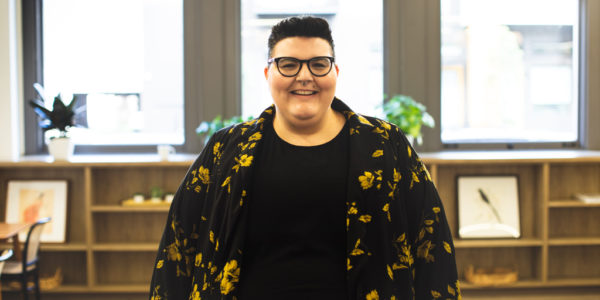You may get the chance to do some work experience at university in the first or final year of your degree. Here’s how to find great work placements!
What types of work experience can you do at university?
There are several different types of work experience you can do while you’re at university:
- You might do an informal placement lasting just a week or two.
- You might also do a longer placement as part of your course (this is common on medicine, dentistry, and veterinary medicine courses, amongst others)
- You might do an internship during the summer or Christmas break.
- Some courses even include a sandwich year, in which you take an entire year away from your studies to work in a relevant role. A sandwich year will always be paid, while other types of work experience may be either paid or unpaid.
Whatever type of work experience you do, you’ll need to find the right placement if you want to get the most benefit out of it. Read on for some of our top strategies on finding and landing the best placement for your needs.
Check (and Double Check) the Requirements
If your work experience is a required part of your course, check and double check the requirements that your placement must adhere to. You don’t want to get offered an amazing placement only to find that it doesn’t meet your university’s regulations.
You will find this information in your course handbook or on your course intranet page. If you cannot find the information or have any additional questions, speak to your tutor or programme leader. Do this before you take any further steps towards finding or applying for a placement.
Make Use of Your Resources
Your university is there to help you succeed, and has extensive resources available to you if you know where to find them. A few of the places you can go to start looking for work experience include:
- Your personal tutor, course leader, or department head
- The careers guidance service (often located within Student Support)
- The library
- Fellow students in the year above you
- Formal or informal mentorship programmes
You might also want to look to your contacts. Who do you already know? Do you have any friends, acquaintances, former colleagues, mentors, or others in your wider circle who might have connections they can leverage to help you find a great placement?
See if Your University Has Any Existing Partnerships
Universities are large and complex operations that have many relationships with other companies and organisations in their areas. Your university very likely has connections with employers that are willing to offer work experience to students, particularly if undertaking a work experience placement is part of your course of study.
Speak to your tutor or course leader, or visit your careers advice service to find out if any such arrangements are in place. If possible, it’s best to have at least some idea of what you’d like to do so that they can help you find the most appropriate placement.
Bear in mind that these placements can be very competitive. You’ll still need to put in a great application, possibly attend an interview, and possibly provide references.
Check Out National Schemes
Many national companies have work experience and internship schemes in place for students at all levels. These placements might be based at the company’s head office (usually in a big city), or at smaller satellite branches and outlets around the country.
National companies’ work experience schemes will typically have very well defined application standards. Make sure you follow the instructions and take time to craft the best application you possibly can, as you will likely be up against many other applicants for a small number of places. Don’t forget to check the deadline and apply in plenty of time, too.
Approach Businesses Directly
Would you like to work with a specific business? If so, it’s fine to approach them directly (assuming they do not have an existing work experience scheme in place) to enquire about placements. Phone, email, or visit in person and ask to speak to the manager. Explain a little about who you are, what you’re studying, and why you’d like to do work experience with them in particular.
Remember that work experience is a two-way deal. You should be clear about what you can offer to the company, not just what you’re hoping to get out of the arrangement.
If the organisation is open to taking you on, they may ask you to apply in writing or complete an application form. Even if they say no, be polite and courteous at every stage of the process. You never know when you might need those contacts later on.
Think Outside the Box
Not all work experience has to be with a traditional business. In fact, for some courses and career paths, this won’t be the right approach. Consider charities, public sector organisations, local government, and arts and cultural institutions as other options for your work experience.
Wherever you decide to apply, it’s sensible to have more than one option on the table. If you only apply to one placement and get rejected, you might end up scrambling for something at the last minute. It’s always better to have to choose between two offers than to have no offers at all.
Good luck with your work experience!













